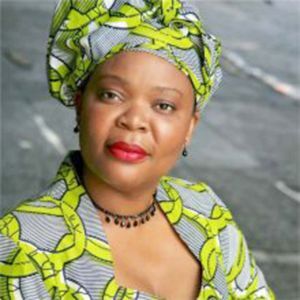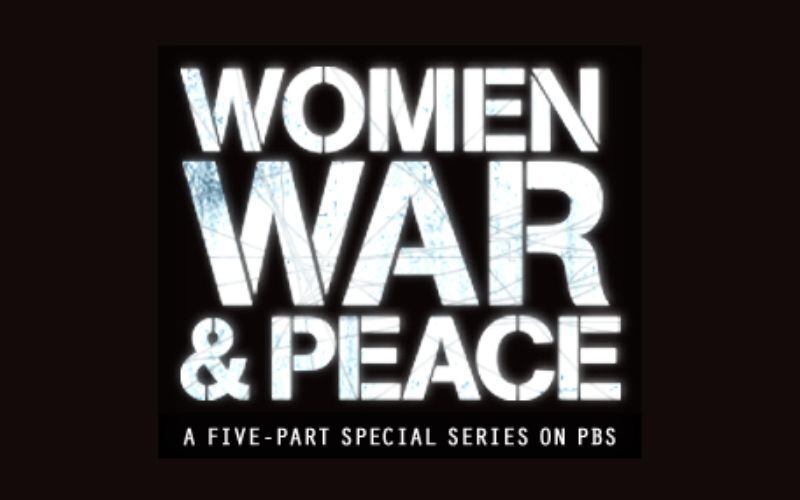Leymah Gbowee: A Powerful Voice for Peace

Few human calamities are worse than war. But the Liberian civil war was unthinkable: Boys in fourth grade were conscripted, drugged, and turned against their own people; women were abused and humiliated; rape became a tool of war. Many of the 200,000 people who perished during 14 years of hostilities were not simply shot—some were maimed and hacked to death.
Leymah Gbowee, then a trauma counselor working in Monrovia, the capital city where many rural Liberians fled, heard firsthand accounts of the atrocities. She organized a group of women at her church to pray for peace. Soon after, they made the unusual decision to reach out to Muslim women as well, and their tactics changed from prayer to protest. With their posters and matching white t-shirts, they become a constant presence on roadsides, where they sang, danced, cried, and—most famously—withheld sex for peace.
The organization gained an audience with then-President Charles Taylor, who promised to attend peace talks in Ghana. But Gbowee and other members of Women of Liberia Mass Action for Peace were doubtful that either the government or the dissidents were truly committed to finding a peaceful solution. To keep the pressure on, they decided to follow Taylor to Ghana, keeping vigil outside the peace talks. When the talks stalled, they staged a sit-in, blocking exits from the hotel until an agreement was reached, bringing peace after 14 years of violence and war. Two years later, they used their new political power to help elect Ellen Johnson-Sirleaf as the only female head of state in Africa.
Gbowee, whose work became famous following the 2008 documentary Pray the Devil Back to Hell, now lives in Accra, Ghana, where she is the executive director of the Women Peace and Security Network-Africa, a grassroots organization that promotes women’s leadership in peace and security governance in Africa. I caught up with her for a brief phone interview.
Kwami Nyamidie: Most African names have meanings. What is the meaning of Leymah, your first name?
Leymah Gbowee: Leymah means, “What is it about me?” My mother had three girls and she was looking for a boy. When she had me, her fourth girl, she asked herself, “What is it about me that I can’t conceive a boy?” In Africa, many parents believe it is more desirable to have a boy than a girl. But now she is very happy that she had five girls.
Kwami: Who were the people who influenced you most when you were growing up?Leymah: I learned my Feminism 101 from my mother and grandmother. They were very spiritual and taught us to be independent and told us that whatever a boy could do, we, too, could do. In her time, my grandma Martha Laworo married three times because she never tolerated domestic violence. Anytime she was abused by any of her husbands she would pack and go. And without any formal education, she managed to be independent, and lived in a community where people treated her with respect. She spoke with authority and she had a mind of her own.
Kwami: You, the Liberian women, and the producers of Pray the Devil Back to Hell have won several awards. Which of these recognitions have been most meaningful for you?
Leymah: I place a high value on all the awards that I have received. But the one that really touched me as an individual was the award that I received from the Emmanuel Brinklow Seventh Day Adventist Church in Maryland. I was honored as a living legend. Here is a community of mostly black people who for the first time are giving this award to someone who is not from the United States.Another award that touched me deeply was from the Refugee Women Association in Ghana. One of the things that the woman who presented the award told me was, “Whenever we read about you on the Internet, whenever we see you on TV, we know that we have somebody who is representing the interests of refugee women.” And while they didn’t have the red carpet, and the light and the media and everything, we had the traditional drums of Ghana; we had the dance and the traditional powder and everything to go with the tradition. I will never forget that day.
Kwami: What can you tell our readers to improve their lives and help them create a better world?
Leymah: In 1993, during the Liberian civil war the boys had nothing to do and sex was like their pastime. Some of the girls who didn’t want to do it were called names and ostracized. One Saturday, I got some popcorn and invited some of these girls into my house. We met for many months. That was the beginning of our teen-adult coalition. Three of these girls graduated from high school without getting pregnant. I tell you this because there are many things happening in our communities. Just look in your backyard. For example, where we see a rising tide of violence and crime in youth, it is a cry from our next generation: “We need you to pay more attention to us.” Can you start tutoring a child? Can you mentor a student? If you are able to touch one person, you have done a whole lot.
Kwami Nyamidie interviewed Leymah Gbowee for YES! Magazine. Kwami is originally from Togo, West Africa. A graduate of Seattle University's School of Theology and Ministry, he is a spiritual director and lives with his family in the Pacific Northwest.
This article was originally posted on Yes! Magazine.

